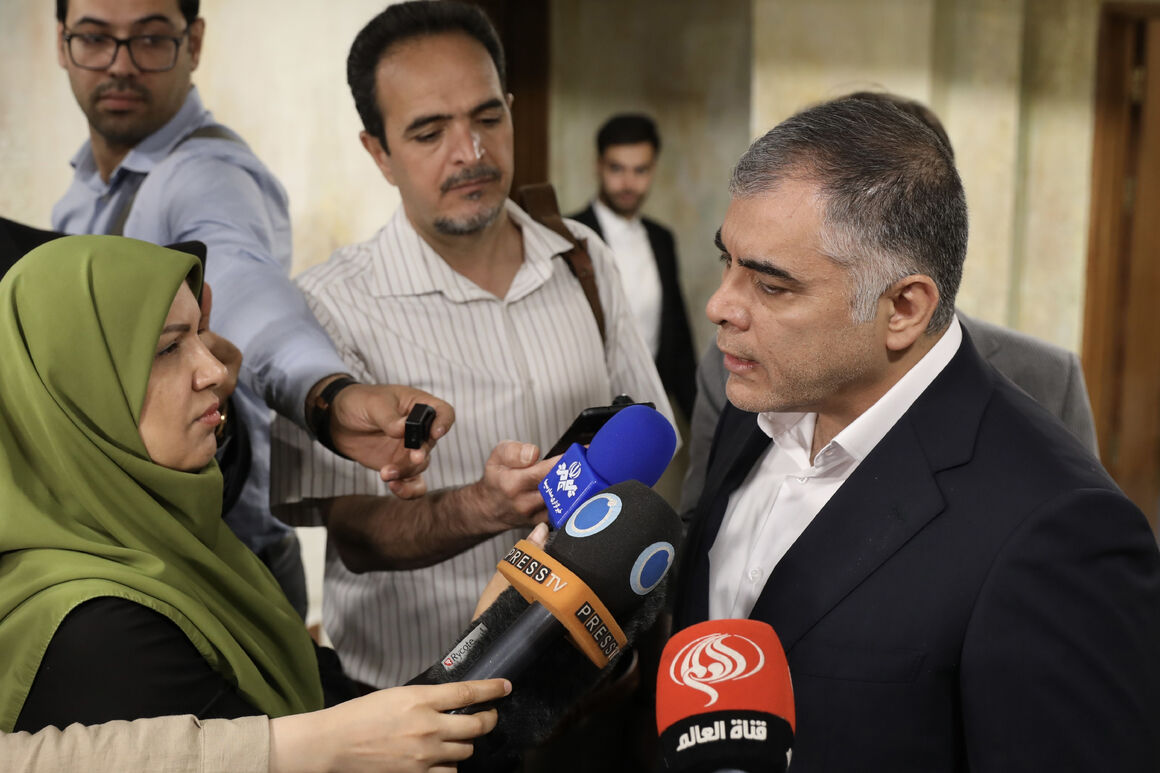"We welcome both domestic and foreign investors," said Mohsen Paknejad on Tuesday, on the sidelines of Strategic Transformation in Iran’s Upstream Oil and Gas Sector, Unlocking Investment and Financing Opportunities in NIOC projects event.
He noted that the event introduced $135 billion in oil industry investment opportunities, adding that measures have been put in place to facilitate investments and prevent challenges for investors.
Paknejad highlighted that this year’s designation by the Leader as the "Year of Investment for Production" was a wise decision, allowing the oil industry—as a driver of economic growth—to leverage investment opportunities. "Iran’s oil industry offers attractive prospects that appeal not only to domestic investors but also to international ones," he said.
The minister stressed that Iran’s seventh development plan sets quantitative targets for oil, gas and petroleum product production, which require substantial investment. "By building public trust and mobilizing domestic capital, a significant portion of financial needs can be met through diverse funding models," he added.
Facilitating private sector investment
Paknejad said about 200 investment packages have been defined for the development of oil and gas fields, targeting increased upstream production and downstream refining capacity.
Responding to concerns about lengthy contract processes and private sector security, he acknowledged past delays but noted improvements. "Previously, finalizing an IPC contract for oil and gas field development could take up to three and a half years, but the government has now streamlined the process to under a year," he said. Additional measures are being taken to enhance security for private investors in the oil sector.
Private sector role in South Pars pressure boost
On accelerating the South Pars pressure enhancement project, Paknejad said Qatar, Iran’s partner in the North Dome field, will deploy its first pressure-boosting platforms within two years. "Even if we start work tomorrow, we are behind schedule, so initial steps must be taken now," he said.
He emphasized the project’s national importance, noting that three of the four involved companies—excluding Petropars—should utilize private sector expertise. "The private sector, with its international partnerships, can expedite this strategic project," he said.
The National Development Fund is coordinating financing, with final approvals pending before execution.
No restrictions on foreign investors
When asked about potential US company involvement if Iran-U.S. talks progress, Paknejad said, "There are no restrictions on foreign investors or international oil and gas firms, provided they meet requirements. We are not waiting for negotiations; domestic capacities in technology and investment can also drive progress."
On the Arash field dispute, he said development awaits border delineation, which is under review by the Foreign Ministry.
No concern over oil price decline
Paknejad dismissed worries that positive Iran-US talks could lower oil prices and impact production plans. "Oil prices depend on multiple variables, not just one factor. Lower prices may reduce development costs, so we are not concerned," he said.
As OPEC’s current president, he noted that production cuts were planned, with any market return contingent on OPEC+ agreements.
Record oil exports confirmed
Without elaborating, Paknejad confirmed Iran’s recent record oil exports after a decade, crediting expert planning under sanctions.
Iran-Russia Economic Commission
Technical meetings began Tuesday, with detailed discussions set for Thursday and Friday, culminating in a joint statement, he noted.
Gasoline imports
Assessments of eligible importers and distributors are nearing completion, with details to be announced soon.


Your Comment